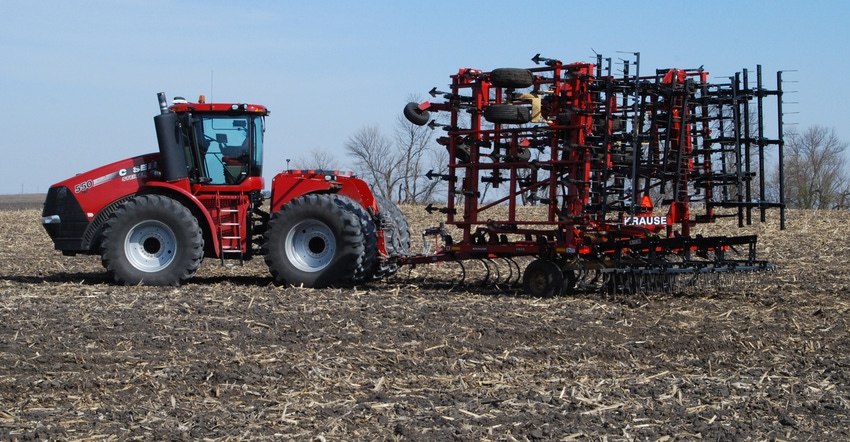October 25, 2018

By Charles Brown
If you know cash flow is already going to be a problem for the coming year, communicate early with your creditors. Many primary ag lenders spent the past few winters restructuring existing farm loans to stretch out principal payments and free depleted working capital. These same lenders might be reluctant to restructure loans anytime soon without a commitment from the borrower to improve their cash flow management to meet existing debt obligations.

Charles Brown

Also, farms without access to typical operating loans should use caution before advancing family living- and farm-related expenses on credit cards or higher interest-bearing debt.
It could be well into the winter or spring months for corn and soybean futures prices to rebound along with significant basis improvement. Overcoming the fixed costs of commercial drying, shrink and storage costs might prove challenging. Adequate commercial storage space should be readily available at harvest, but basis improvement may be limited, especially for soybeans. Limitations of the fixed costs of commercial storage and accruing interest on existing debt, along with any short-term basis improvement, could negate potential for a positive net return to grain ownership.
Sell some assets to pay bills?
To liberate cash and possibly to meet loan obligations, some farmers may be entertaining the idea of selling some farm assets. Start by making a list of essential and nonessential assets. Many of us probably have assets that are no longer used, or maybe have become outdated for today’s farming operations. A few years ago, I visited with a farmer who decided to have a small farm auction, and he cleaned out his machine shed and the old fence row behind the barn. His neighbors stopped by and asked about renting his farm; they thought he was selling out.
When making the decision on what to sell, be careful about selling productive assets. Those assets that are producing the income for the farming operation should not be the assets sold. That doesn’t mean we can’t look at alternatives. Maybe at today’s commodity prices we can’t justify owning a combine that is used just a few weeks a year. Hiring someone to custom-combine your crops might be a better financial alternative.
Consider tax implications
Beware of tax consequences when selling assets. In the case of selling farm machinery, the recapture of depreciation is ordinary gain, not capital gain. The difference is that ordinary gain is taxed at whatever tax bracket the taxpayer falls into. Capital gain has a maximum rate of 0%,15% or 20%, depending on the taxable income of the taxpayer.
Let’s use the example of a combine that was purchased in 2010 for $200,000, is now fully depreciated and has a $0 basis. If that combine is sold in 2018 for $100,000, then that income is all ordinary gain and subject to the same income tax percentage as the other farm income. That sale is not subject to self-employment tax.
A change in the tax laws for 2018 is the 199a deduction. This deduction can become very complex, but in general, a farmer will get to reduce his or her farm income — Schedule F — by 20%. Ordinary gain from the sale of machinery is included in the calculation as farm income, but not capital gain. This is simplifying a very complex portion of the tax code, so check with your income tax preparer in advance.
Check with your advisers
If assets have liens against them, make sure to visit with your lender before selling the assets. Make arrangements to have a portion of the income from the sale set aside to cover the income tax obligations. You don’t want to be in the position of having all the proceeds go to the lender and left with no money to pay the income taxes.
Each farm situation is different, so always visit with your accountant and/or income tax preparer to determine the tax consequences before making a sale. You don’t want to have any surprises after the fact that you sold farm assets.
A great resource for farm income tax information is the ISU Center for Agricultural Law and Taxation website, calt.iastate.edu.
Brown is an Iowa State University Extension and Outreach farm management specialist. He can be reached at [email protected].
You May Also Like




